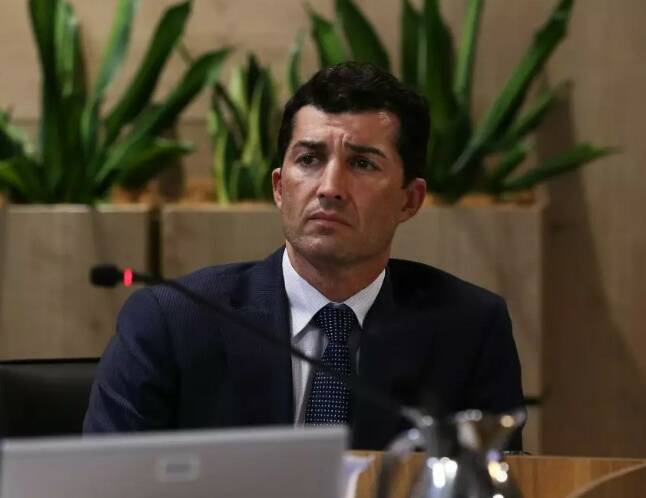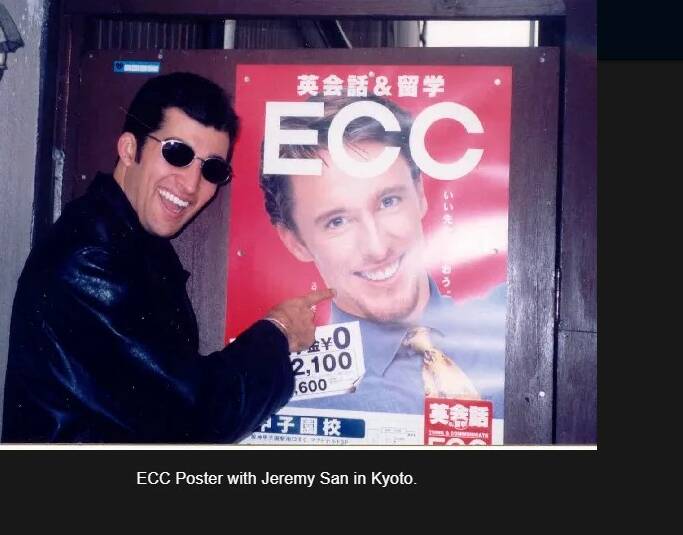
CITY of Newcastle has admitted it refused access to documents requested under the state's freedom of information laws in an effort to shut down public debate about the code of conduct investigation into CEO Jeremy Bath.
The council said further public debate about the investigation that examined Mr Bath's links to the Scott Neylon letter-writing scandal would damage reputations and cause psychological harm.
In an effort to stop the Newcastle Herald "publishing articles criticising the investigation, the investigator and City of Newcastle's personnel involved in the matter", the council has refused requests for information made under NSW's freedom of information laws, known as the GIPA Act.
Council also refused to reveal how much ratepayers' money was spent on the investigation, saying that if the figure was made public it would damage consultant Pinnacle Integrity's business interests and subject the firm to criticism.
Executive director of corporate services David Clarke made the claims this month to justify his decision to withhold information in response to two GIPA applications lodged with the council in February.

In his response to both requests, Mr Clarke took aim at the Herald for publishing articles, letters to the editor and editorials about the investigation and its outcome.
He accused the Herald of publicly denigrating the investigation process and the people involved, relying on the claim as a reason to deny access to information.
"These publications by the applicant have encouraged an incorrect or false narrative in the public domain and have resulted in reputational damage to the conduct reviewer and City of Newcastle staff with key roles under the code of conduct, subjecting those involved in the investigation to disparagement, ridicule and contempt," he said.
The Herald's motives for making the GIPA requests were also brought into question.
'Ongoing reputational harm'
The GIPA system was introduced by the Labor government in 2009 as a replacement for NSW's Freedom of Information Act. GIPA was designed to shift the focus of governments from seeking to keep information secret to a system with a "proactive disclosure" bias.
The Herald's first GIPA application requested the cost of the investigation, copies of the draft investigation report, preliminary assessment and the final report.
A second request sought access to correspondence between the council and Pinnacle Integrity.
Mr Clarke said releasing the information sought by the Herald would result in publications that would "cause further and ongoing reputational and psychological harm" to Mr Bath, council staff, councillors, Pinnacle Integrity and Mr Neylon.
While acknowledging that withholding information to protect the council's reputation was against the law, he refused access to all information requested that was not already in the public domain.
"I note that the fact that disclosure of information might cause embarrassment to, or a loss of confidence in, the government, or might be misinterpreted or misunderstood by any person, is irrelevant and must not be taken into account in a public interest determination," he said.
"Nevertheless, the conduct and motives of the applicant can be taken into account by City of Newcastle in certain circumstances as provided [under the GIPA Act]."

Mr Clarke then went on to allege that the Herald was motivated to submit the GIPA requests in an effort to gain material to criticise the council, its staff and the investigation process.
The investigation examined Mr Bath's links to a misleading letter-to-the-editor writing campaign under the name of his best friend Mr Neylon, who has lived in Japan for decades.
The Herald revealed in July that dozens of letters and online comments have been published in media outlets over 13 years under the name Scott Neylon, which twist the truth, distort reality and follow Mr Bath's career progression, attacking his critics and supporting his employers.
Mr Bath has denied any involvement in the letters and the Pinnacle Integrity investigation found in December that there was "no evidence that the CEO directly contributed to the letters".
After months of public pressure and criticism due to the narrow scope of the probe, City of Newcastle released the final investigation report with minor redactions last month.
Disclosure 'not in public interest'
The Herald lodged the two GIPA applications eight weeks before the council "proactively" made the report public.
All requests were denied, besides the slightly redacted final investigation report that council said it released on the grounds that it was in the public interest because it investigated the council's CEO, Mr Bath.
The council refused to reveal how much ratepayers' money it spent on the investigation on two grounds.
"In a market where there are a limited number of suppliers of the services that Pinnacle Integrity provides, the disclosure of the cost charged by Pinnacle Integrity can reasonably be expected to prejudice their legitimate interests as it would provide an unfair advantage to any of their competitors," Mr Clarke said.
His second reason for withholding the information was due to the Herald's "conduct to date regarding the code of conduct review".
Mr Clarke said revealing the cost would likely result "in further prejudice to Pinnacle Integrity's legitimate interests".

Mr Clarke claimed this would happen because the Herald would publish "further aspersions on the conduct of the code of conduct review and the integrity and professionalism of Pinnacle Integrity and its personnel".
He reasoned that because the annual amount spent on code of conduct investigations was provided to councillors each year in November or December, it was not in the public interest to disclose the cost of the Bath investigation.
Public debate having 'adverse impact on health'
In deciding to deny access to the draft investigation and preliminary assessment reports, despite commenting that they do not substantially differ from the final Investigation report, Mr Clarke continued his criticism of the Herald.
He said that if the reports were released the Herald's reporting would "likely cause ... further and ongoing reputational and psychological harm to the investigator, the respondent [Mr Bath], City of Newcastle's staff, councillors and third parties involved in the process".
"The investigation into the CEO has been extensively discussed in the public space, including in the local media for an extensive period questioning the findings and the process," he said.
"As already noted above, the applicant has played an active role in the public criticism of the investigation process and the personnel involved, including labelling the investigation as a 'sham'."
Mr Clarke said threats had been made against Mr Bath, Mr Neylon and staff with "functions under the code of conduct".
He said public debate on the issue had had "a real and substantial adverse impact on these individuals' health".
"Considerable steps have been taken to address the risks identified and City of Newcastle has written to the applicant advising of their concern for harm of a particular staff member of City of Newcastle [Mr Bath]," he said.
In his second decision denying access to correspondence between City of Newcastle and Pinnacle Integrity, Mr Clarke again questioned the Herald's motives for making the application and continued his criticism of its "conduct to date".
He also said in both decisions that Pinnacle Integrity objected to the release of the information.
Donna.page@newcastleherald.com.au







